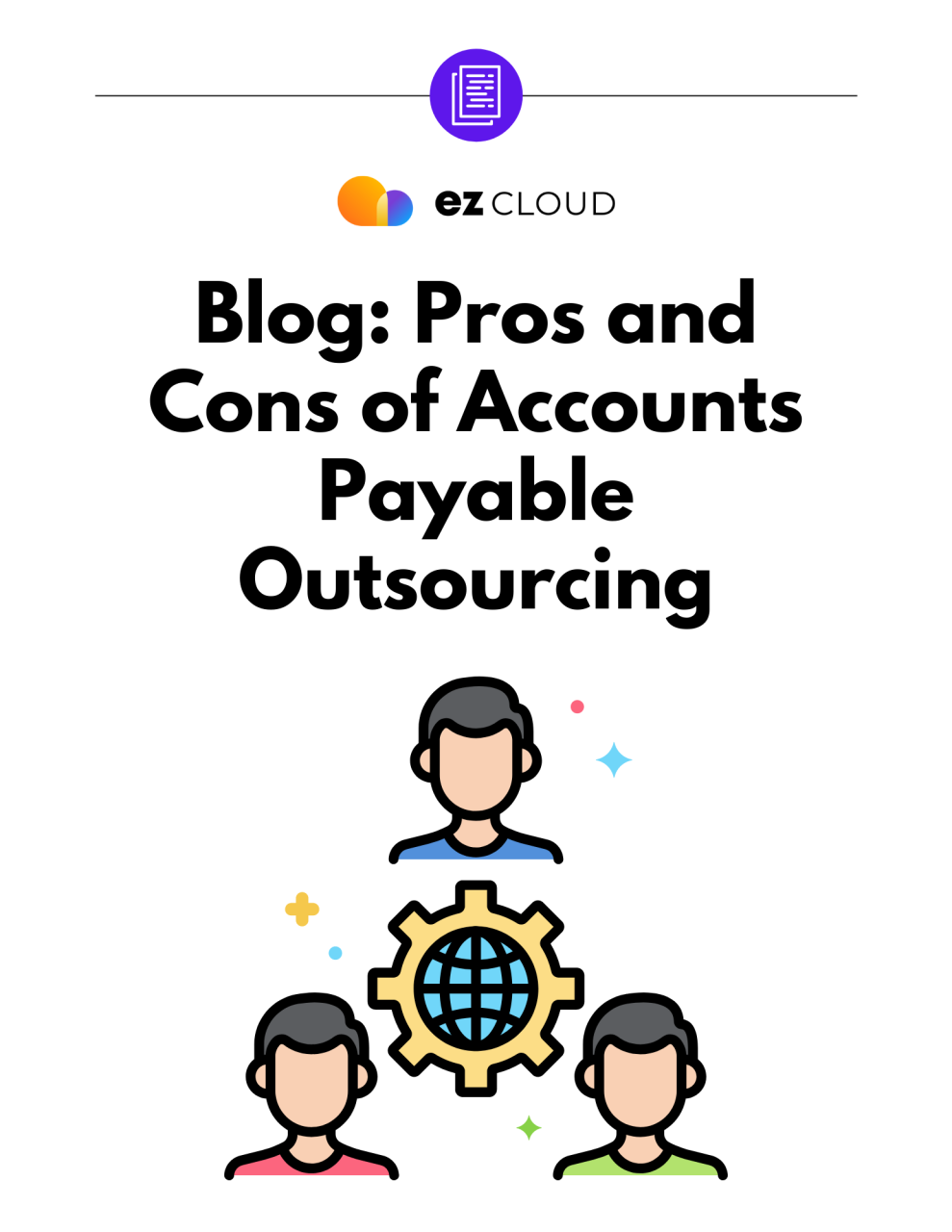Accounts payable outsourcing is bringing a whole new dimension to the business world. Two of the most significant benefits of AP outsourcing include increasing your company’s bottom line and decreasing the amount of time spent on manual tasks like data entry. Transitioning from an in-house accounts payable team to an outsourcing AP provider requires extensive preparation. As with any big decision, you’ll want to look at the pros and cons of AP outsourcing before deciding if the time is right to make the transition.

Capital Savings
Saving money by outsourcing accounts payable tasks is often the strongest pro for making the switch. Eliminating in-house staff also eliminates the cost of health benefits, payroll taxes, and other employee perks, like paid time off (2). You’ll also be decreasing the costs associated with recruiting accounts payable professionals for your in-house team. If you’re considering off-shore AP outsourcing, the expected salary standards may be lower than in your home country, which means the cost of outsourcing is also lower than the base salary you’d expect to pay an in-house employee. (2).
Freedom and Reliability
Accounts payable outsourcing gives your mid-management staff and controller more freedom to focus on tasks other than the day-to-day dilemmas that are a natural by-product of processing AP in-house (3). There isn’t any scrambling to cover the accounts payable department if people are on vacation or ill. Once you’re up and running with AP outsourcing, your check runs will be processed on time, without any downtime that might result if a team member quits without notice or during the training period when you’re trying to get a new hire up to speed.
Expertise
Once you get the nuts and bolts sorted out during the implementation of AP outsourcing, you can rest easy knowing your account payable process is in the hands of accounting professionals who specialize in AP. This can be critical if your labor market lacks qualified accounts payable candidates. The outsourcing provider’s responsibility is to handle staffing, not you. Also, outsourcing accounts payable increases objectivity when reviewing transactions (3).
Time Zone Differences
This factor can be both a pro and a con. Your AP check run might be processed before you wake up, increasing efficiency (1). Also, if outsourcing off-shore, the company might follow different holidays than your home country. This could translate into decreasing delays in processing time during your own holidays. The con of time zone differences and accounts payable outsourcing is you may not always have access to customer support during your regular business hours, which can be frustrating (1).
Employee Morale
The impact of accounts payable outsourcing on your AP team can be substantial. Team members specializing in other areas, like accounts receivable or payroll, might speculate that their roles are also under scrutiny for being kept in-house (4). Laying off accounts payable staff could negatively affect other workers outside the accounting department as workplace ties are severed. Being entirely transparent while outsourcing accounts payable is the key to making employees feel more comfortable with the change. Also, shifting existing in-house AP team members into other roles can eliminate the need to terminate their employment.
Loss of Control
For controllers and managers who like to take a hands-on approach to AP, it can be challenging to let go of micromanagement. On the one hand, the success of accounts payable outsourcing is directly tied to the thoroughness of the implementation process. On the other hand, you have to trust your outsourcing provider to adequately train their staff and understand the expectations you have for them. Also, if the outsourcing provider declares bankruptcy, you might be left in a precarious position as you attempt to bring accounts payable back in-house (4).
Another factor to consider is the sensitivity and confidentiality of your accounts payable data. When you outsource AP, you trust that the company taking over the task has processes in place to protect your data and is also correctly vetting their staff.
Implementation Effort
When converting to accounts payable outsourcing, you must have your current processes documented down to the granular level. This can take time if you’re starting from scratch and might raise suspicion from your AP team if you keep the implementation under wraps for the moment. You’ll also need to remain flexible to adapt current processes to fit what the outsource provider is offering. This could be a chance to streamline your AP process further and eliminate outdated steps and embrace new technologies, like AP automation. In any case, you’ll need to ensure you have the time and bandwidth to move ahead with the implementation.
After carefully considering whether your organization should move forward with accounts payable outsourcing, you may decide you’re not ready to shift away from in-house AP processing. However, understanding your options and keeping them in mind for the future is beneficial. If you are ready to take the leap, consider a test run for opening the door to easing manual accounting tasks, or consider the benefits of accounts payable automation and how AP automation impacts the invoice life cycle to learn about alternative options.
Sources




